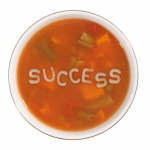Every Day Is Your Job Interview!

Very early in my career I received some advice to “treat every day in the workplace as if it was your next job interview.”
At that time, I had been through an actual interview for a supervisory job which would have been a promotion for me. I didn’t get the job and was really upset about it.
I knew that I had a really good interview and the feedback I received was that my assessment/assignment was excellent - that I had done the best on the interview and case study. But I didn’t get the job! This was a great blow to my ego and self-confidence, and really set me back a few steps. I reacted negatively in the moment and it took me awhile to get over the shock and disappointment. I wasn’t performing at my best for a period of time after that interview and I carried the resentment with me - which showed up everywhere!
My boss eventually addressed this with me during a meeting about my performance and future goals. He shared that he noticed the change in me since that interview and that it was affecting my work performance and relationships. I knew it too, but hadn’t been emotionally mature enough move past the experience. I looked at it as a personal set-back for myself and my career.
At that meeting with my boss, he gave me some advice and asked me to think beyond that one interview and said "every day is your job interview" and to treat each and every day in the workplace as I was auditioning for my next role. He pointed out to me that what we say, what we do and how we conduct ourselves is being observed and judged by others around us, whether we want to admit that or not. Our actions and inter-actions form the perceptions that others have of us. He said that at the end of the day, we are each in charge of choosing our attitude in any situation – and it matters. This was powerful advice that I received from a great leader.
Today in my work as a certified professional coach, I support leaders to move through these and other set-backs and get back on track. The insight I received from my boss to treat every day as a job interview is something that has stuck with me. This concept applies at each step in our journey – work or personal.
Over the years, I have observed many leaders in the workplace who have not handled personal set-backs like this well and the significant impact that this can have on their career path success. On the other side, I have also observed many leaders who have handled personal set-backs extremely well and are regarded as role models for others, demonstrating high emotional intelligence and leadership. They choose to take the high road, roll up their sleeves and put forward their best effort despite the circumstances.
“The biggest predictor of career success? Not skills or education — but emotional intelligence” Financial Post
In today’s fast-paced and changing environment, organizations are looking for emotionally intelligent leaders who are resilient and able to work through challenges, handle set-backs with grace, recover from disappointment, take the high road, and choose to make the best of what is in alignment with the organization. The Six Seconds Organization defines emotional intelligence in three (3) categories:
- Know Yourself: increasing self-awareness. It is based on understanding how you function. Emotions are data – chemical signals to help us handle threats and opportunities.
- Choose Yourself: building self-management. It focuses on consciously choosing your thoughts, feelings and actions. When a situation just starts to heat up, “press the pause button.” Take a big breath. Get some water. Say, “Let me think about this for a moment.” There are very few situations that actually require an instant reaction. Remember you have many options. Sometimes it’s hard to see those. You can change your thoughts, engage new feelings, experiment with new actions. You might not have “the perfect solution,” but you do have possibilities!
- Give Yourself: developing self-direction. It comes from using empathy and principled decisions-making to increase wisdom and to create a more compassionate, healthy world. Your choices matter. The way you respond effects others, and effects you — so you effect the future. What’s the effect you want to have?
In 2009, I was introduced to another amazing tool called The Choice Map™ at the ICF Conference in Orlando, FL where Marilee Adams, author of Change Your Questions, Change Your Life, talked about choosing your mindset.
She introduced the learner and judger mindsets and how, in every moment, we have the power to choose our path. Research would say we are hard-wired for the judger path where we focus on the problem and ask ourselves questions like: what’s wrong, who’s to blame, why doesn’t anything ever work. We all get stuck here from time to time and that is normal. Marilee emphasizes that we have the ability to consciously choose another path by switching our focus and changing the questions we ask ourselves – known as the learner path.
Organizations are looking for leaders who take a learner path focused on the opportunity (versus the problem) and ask questions like: what is possible, what is working, what can I learn, how can I help the organization, what do I need to do to be successful.
I recommend The Choice Map as an amazing tool towards developing a learner (or a coaching) mindset that is practical, easy to understand and supports a solution-focused coach-approach. Check out Marilee Adam’s Chief Question Officer Training on her website The Inquiry Institute.
Some of my favourite quotes on this topic from Viktor E. Frankl, author of Man’s Search for Meaning:
- “Everything can be taken from a man but one thing: the last of the human freedoms—to choose one’s attitude in any given set of circumstances, to choose one’s own way.”
- “Between stimulus and response, there is a space. In that space is our power to choose our response. In our response lies our growth and our freedom.”
- “Our greatest freedom is the freedom to choose our attitude.”
- “When we are no longer able to change a situation, we are challenged to change ourselves.”


